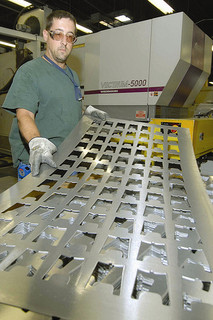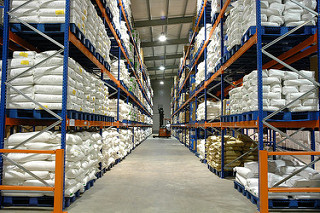What Will Logistics Look Like Tomorrow?

With the recent innovations in technology, environmental policy, and the global supply chain, it’s no surprise that the logistics industry is also undergoing tremendous changes. The transportation industry is trying to clean up their bad environmental reputation and use new technologies to make it easier, faster, and more efficient to transport goods to businesses and consumers. What will the changes lead to?
This article is for Premium Members only. Please login below to read the rest of this article.
Not a Premium Member yet? Become one today.
[login_form redirect=’https://www.procurementbulletin.com/what-will-logistics-look-like-tomorrow’]
[show_to accesslevel=’Premium Members’]
Shrinking Need for the Middlemen
The traditional business model has always been manufacturer to retailer to consumer. As businesses move toward online sales, and away from brick and mortar installations, there is less need for the retail middleman. Businesses and consumers are increasingly ordering online directly from the manufacturer.
This is true for large corporations and industries ordering huge amounts of raw materials, and equally true for individuals ordering for small family needs. Logistics will move away from the large-scale transports to retailers, but this business is being replaced by the transport of goods to distribution warehouses closer to customers from which the goods can be shipped directly.
Customers and Logistics Companies Respond in Realtime
Consumers’ ability to track their deliveries from the manufacturer to their home or business is getting an upgrade. In addition to the current practice of tracking the location of packages, logistics companies can begin offering services such as the ability to monitor the temperature and humidity where the package is. Customers and logistics can then make real-time adjustments to improve the quality of the merchandise upon delivery. This takes the guesswork out of when goods will arrive and what condition they’ll be in when they get there.
Urban Growth Complicates Logistics
According to DHL, the largest logistics firm in the world, half of the world’s population will live in urban areas in less than five years. Crowded highways and byways are going to complicate transportation, but big data initiatives may compensate for this to some extent. Smarter traffic lights that can respond to traffic bottlenecks are just one example of how big data analysis and predictive systems can alleviate the difficulties of inner city transportation.
Environmental Concerns Change the Way Logistics Companies Operate
Worries over climate change, pollution, and the effect of mass transportation of goods and people on the earth are causing huge changes in logistics. Companies are finding innovative ways to reduce the fuel consumption of big rigs, trains, ships, and other transportation vehicles. There are also huge strides in making all forms of transportation less polluting to the environment. Tomorrow’s logistics will be cleaner, greener, and more efficient.
Technology Produces Smarter Logistics
Big data analysis is going to impact logistics far beyond aiding in urban traffic jams. Together with the cloud, big data is helping to create smarter logistics. Computers can quickly find new routes when weather or political unrest make travel in a particular area more difficult. These computers can also route drivers more efficiently, allow companies to provide better customer service with fast response even during the busiest times, and find ways to make deliveries cheaper by using less fuel. Tomorrow’s logistics will be more efficient because big data analysis can predict bottlenecks before they become a problem and reroute resources to compensate.
It’s an exciting time for supply chains, and changes in logistics could make all these jobs easier, quicker, and more efficient. [/show_to]







